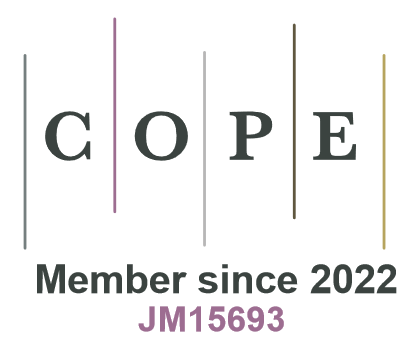The impact of cigarette smoking on the quality of sleep in Polish men
DOI:
https://doi.org/10.2478/anre-2021-0028Keywords:
sleep apnea, polysomnography, snoring, nicotineAbstract
Quality of sleep directly impacts quality of life, whilst lifestyle significantly impacts night rest. Cigarette smoking is a serious threat to overall health, including sleep. Nicotine in cigarettes affects the nervous system, whilst the respiratory system is impacted by carcinogenic substances, such as dusts and tarred substances, inhaled with smoke. Cigarettes are assumed to be a risk factor in sleep disorders, including breathing sleep disorders.
This study’s aim was to analyze the impact of cigarette smoking on adult men’s polysomnographic parameters.
Polysomnographic records for 94 adult men were obtained from the polysomnography laboratory in Opolskie Province, Poland. Additionally co-morbidities, height, weight and frequency of smoking were also noted. Three groups of men were categorised according to the frequency with which they smoked: non-smokers, smoking less than a pack a day, smoking more than a pack a day.
Compared to non-smokers and mild smokers, men who were heavy smokers also exhibited the longest sleepless time (H=8.11; p=0.017), the maximum waking time following the onset of sleep (H=7.99; p= 0.018), the lowest sleep efficiency across the three groups (H=7.96; p=0.019), the greatest number of apnea events per hour of sleep (H=6.23; p= 0.045), the lowest Oxygen Level Nadir (H=11.44; p= 0.003) and the highest rate of limb movements per hour of sleep (H=9.81; p=0.007).
The dose effect was identified, which correlated more cigarettes men smoked per day with lower sleep quality.
Downloads
References
Bassett SM, Lupis SB, Gianferante D, Rohleder N, Wolf JM. 2015. Sleep quality but not sleep quantity effects on cortisol responses to acute psychosocial stress. Stress 18(6):638–44.
View in Google Scholar
Bellatorre A, Choi K, Lewin D, Haynie D, Simons-Morton B. 2017. Relationships between smoking and sleep problems in black and white adolescents. Sleep 40(1). Available at: https://doi.org/10.1093/sleep/zsw031.
View in Google Scholar
Bryant PA, Trinder J, Curtis N. 2004. Sick and tired: does sleep have a vital role in the immune system?. Nat Rev Immunol 4(6):457–67.
View in Google Scholar
Carley DW, Farabi SS. 2016. Physiology of sleep. Diabetes Spectrum 29(1):5–9.
View in Google Scholar
Cohrs S, Rodenbeck A, Riemann D, Szagun B, Jaehne A, Brinkmeyer J et al. 2014. Impaired sleep quality and sleep duration in smokers – results from the German Multicenter Study on Nicotine Dependence. Addiction Biology 19(3):486–96.
View in Google Scholar
Conway SG, Roizenblatt SS, Palombini L, Castro LDS, Bittencourt LRA, Silva RS, Tufik S. 2008. Effect of smoking habits on sleep. Braz J Med Biol Res 41(8):722–7.
View in Google Scholar
Davila DG, Hurt RD, Offord KP, Harris CD, Shepard Jr JW. 1994. Acute effects of transdermal nicotine on sleep architecture, snoring, and sleep-disordered breathing in nonsmokers. Am J Respir Crit Care Med 150(2):469–74.
View in Google Scholar
Hoffstein V. 2002. Relationship between smoking and sleep apnea in clinic population. Sleep 25(5):517–22.
View in Google Scholar
Hsu WY, Chiu NY, Chang CC, Chang TG, Lane HY. 2019. The association between cigarette smoking and obstructive sleep apnea. Tobacco Induced Diseases 17(April). Available at: https://doi.org/10.18332/tid/10589310.18332/tid/105893
View in Google Scholar
Hwang JW, Sundar IK, Yao H, Sellix MT, Rahman I. 2014. Circadian clock function is disrupted by environmental tobacco/cigarette smoke, leading to lung inflammation and injury via a SIRT1 BMAL1 pathway. The FASEB Journal 28(1):176–94.
View in Google Scholar
Jaehne A, Unbehaun T, Feige B, Lutz UC, Batra A, Riemann D. 2012. How smoking affects sleep: A polysomnographical analysis. Sleep Medicine 13(10):1286–92.
View in Google Scholar
Jaehne A, Unbehaun T, Feige B, Cohrs S, Rodenbeck A, Riemann D. 2015. Sleep changes in smokers before, during and 3 months after nicotine withdrawal. Addiction Biology 20(4):747–55.
View in Google Scholar
Kashyap R, Hock LM, Bowman TJ. 2001. Higher prevalence of smoking in patients diagnosed as having obstructive sleep apnea. Sleep and Breathing 5(4):167–72.
View in Google Scholar
Kim KS, Kim JH, Park SY, Won HR, Lee HJ, Yang HS, Kim HJ. 2012. Smoking induces oropharyngeal narrowing and increases the severity of obstructive sleep apnea syndrome. J Clin Sleep Med 8(4):367–74.
View in Google Scholar
Krishnan V, Collop NA. 2006. Gender differences in sleep disorders. Curr Opin Pulm Med 12(6):383–9.
View in Google Scholar
Landry GJ, Best JR, Liu-Ambrose T. 2015. Measuring sleep quality in older adults: a comparison using subjective and objective methods. Front Aging Neurosci 7:166. Available at: https://doi.org/10.3389/fnagi.2015.00166.10.3389/fnagi.2015.00166
View in Google Scholar
Liao Y, Xie L, Chen X, Kelly BC, Qi C, Pan C et al. 2019. Sleep quality in cigarette smokers and nonsmokers: Findings from the general population in central China. BMC Public Health 19:808.
View in Google Scholar
Lim DC, Mazzotti DR, Sutherland K, Mindel JW, Kim J, Cistulli PA et al. 2020. Reinventing polysomnography in the age of precision medicine. Sleep Med Rev 52:101313. Available at: https://doi.org/10.1016/j.smrv.2020.101313.10.1016/j.smrv.2020.101313
View in Google Scholar
Littner M, Kushida CA, Anderson WM, Bailey D, Berry RB, Davila DG et al. 2003. Practice parameters for the role of actigraphy in the study of sleep and circadian rhythms: an update for 2002. Sleep 26(3):337–41.
View in Google Scholar
McNicholas WT, Krieger J, Levy P De Backer W, Douglas N, Marrone O et al. 2002. Public health and medicolegal implications of sleep apnoea. Eur Respir J 20(6):1594–1609.
View in Google Scholar
Ohayon MM, Li KK, Guilleminault C. 2001. Risk factors for sleep bruxism in the general population. Chest 119(1):53–61.
View in Google Scholar
Ohayon MM, Roth T. 2002. Prevalence of restless legs syndrome and periodic limb movement disorder in the general population. J Psychosom Res 53(1):547–54.
View in Google Scholar
Purani H, Friedrichsen S, Allen AM. 2019. Sleep quality in cigarette smokers: Associations with smoking-related outcomes and exercise. Addictive Behaviors 90:71-76.
View in Google Scholar
Qaseem A, Kansagara D, Forciea MA, Cooke M, Denberg TD, Barry MJ et al. 2016. Management of chronic insomnia disorder in adults: A clinical practice guideline from the American college of physicians. Ann Intern Med 165(2):125–33.
View in Google Scholar
Reite M, Weissberg MP, Ruddy J. 2009. Clinical manual for evaluation and treatment of sleep disorders. American Psychiatric Pub.
View in Google Scholar
Riemann D, Berger M, Voderholzer U. 2001. Sleep and depression – results from psychobiological studies: an overview. Biol Psychol 57(1–3):67–103.
View in Google Scholar
Sateia MJ. 2014. International classification of sleep disorders. Chest 146(5):1387–94.
View in Google Scholar
Slaven JE, Mnatsakanova A, Burchfiel CM, Smith LM, Charles LE, Andrew ME, Gu JK, Ma C, Fekedulegn D, Violanti JM. 2011. Association of sleep quality with depression in police officers. Int J Emerg Ment Health 13(4):267–77.
View in Google Scholar
Spadola CE, Guo N, Johnson DA, Sofer T, Bertisch SM, Jackson CL et al. 2019. Evening intake of alcohol, caffeine, and nicotine: Night-to-night associations with sleep duration and continuity among African Americans in the Jackson Heart Sleep Study. Sleep 42(11). Available at: https://doi.org/10.1093/sleep/zsz136.10.1093/sleep/zsz136
View in Google Scholar
Tan HL, Gozal D, Ramirez HM, Bandla HPR, Kheirandish-Gozal L. 2014. Overnight polysomnography versus Respiratory polygraphy in the diagnosis of pediatric obstructive sleep apnea. Sleep 37(2):255–60.
View in Google Scholar
Tzischinsky O, Cohen A, Doveh E, Epstein R, Ribak J, Klein D, et al. 2012. Screening for sleep disordered breathing among applicants for a professional driver’s license. J Occup Med 54(10):1275–80.
View in Google Scholar
Watson NF, Badr MS, Belenky G, Bliwise DL, Buxton OM, Buysse D et al. 2015. Joint Consensus Statement of the American Academy of Sleep Medicine and Sleep Research Society on the Recommended Amount of Sleep for a Healthy Adult: Methodology and Discussion. Journal of Clinical Sleep Medicine. American Academy of Sleep Medicine. Available at: https://doi.org/10.5664/jcsm.4950
View in Google Scholar
West R. 2017. Tobacco smoking: Health impact, prevalence, correlates and interventions. Psychol Health 32(8):1018–36.
View in Google Scholar
Wetter DW, Young TB. 1994. The relation between cigarette smoking and sleep disturbance. Prev Med 23(3):328–34.
View in Google Scholar
Young T, Skatrud J, Peppard PE. 2004. Risk factors for obstructive sleep apnea in adults. JAMA 291(16):2013–6.
View in Google Scholar
Zarowski M, Mojs E, Kleka P, Steinborn B. 2007. The impact of smoking cigarettes on insomnia and excessive daytime sleepiness symptoms among teachers. Przeglad Lekarski 64(10):645–8.
View in Google Scholar
Zeitlhofer J, Schmeiser-Rieder A, Tribl G, Rosenberger A, Bolitschek J, Kapfhammer G et al. 2000. Sleep and quality of life in the Austrian population. Acta Neurologica Scandinavica 102(4):249–57.
View in Google Scholar
Zhang L, Samet J, Caffo B, Punjabi NM. 2006. Cigarette smoking and nocturnal sleep architecture. Am J Epidemiol 164(6):529–37.
View in Google Scholar
Downloads
Published
How to Cite
Issue
Section
License

This work is licensed under a Creative Commons Attribution-NonCommercial-NoDerivatives 4.0 International License.








